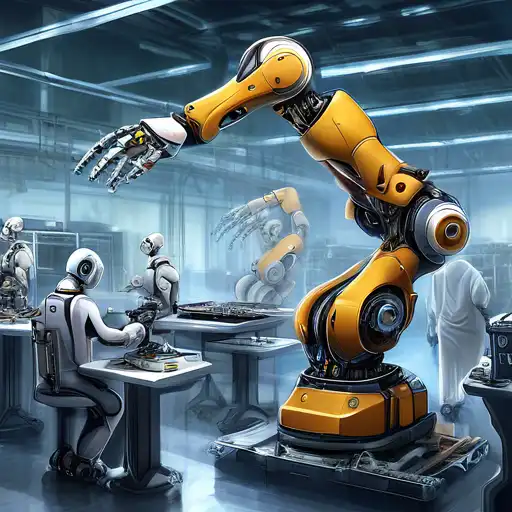The Revolutionary Impact of Robotics on Modern Manufacturing
In the ever-evolving landscape of industrial production, robotics has emerged as a cornerstone of innovation, driving efficiency, precision, and scalability to unprecedented levels. This transformative technology is not just reshaping manufacturing processes but is also redefining the competitive dynamics of industries worldwide.
Enhanced Efficiency and Productivity
One of the most significant contributions of robotics in manufacturing is the remarkable increase in efficiency and productivity. Robots, with their ability to operate 24/7 without fatigue, have drastically reduced production times while maintaining consistent quality. This relentless productivity enables manufacturers to meet the growing demands of the global market more effectively.
Precision and Quality Control
Robotics technology brings unparalleled precision to manufacturing processes. High-precision robots are capable of performing intricate tasks with minimal errors, ensuring superior product quality. This level of accuracy is particularly crucial in industries such as aerospace and electronics, where even the slightest deviation can have significant repercussions.
Cost Reduction and Scalability
By automating repetitive and labor-intensive tasks, robotics significantly reduces labor costs and minimizes human error. Furthermore, robotic systems offer remarkable scalability, allowing manufacturers to easily adjust production levels in response to market fluctuations without the need for extensive workforce adjustments.
Worker Safety and Ergonomics
Robotics has also played a pivotal role in enhancing worker safety by taking over hazardous tasks that pose risks to human health. From handling toxic materials to operating in extreme environments, robots have made manufacturing jobs safer and more ergonomic, leading to a healthier workforce.
The Future of Manufacturing with Robotics
As we look towards the future, the integration of artificial intelligence and machine learning with robotics promises to unlock even greater potentials. Smart factories, powered by autonomous robots and IoT devices, are set to revolutionize manufacturing by enabling real-time monitoring, predictive maintenance, and adaptive production lines.
The transformative impact of robotics on manufacturing is undeniable. By embracing this technology, industries can achieve not only operational excellence but also sustainable growth in the digital age. For more insights into the future of manufacturing, explore our technology trends section.
In conclusion, robotics is not just transforming manufacturing; it is setting the foundation for the next industrial revolution. As businesses continue to navigate the challenges of the 21st century, the adoption of robotic technology will be a key determinant of success in the competitive global marketplace.
